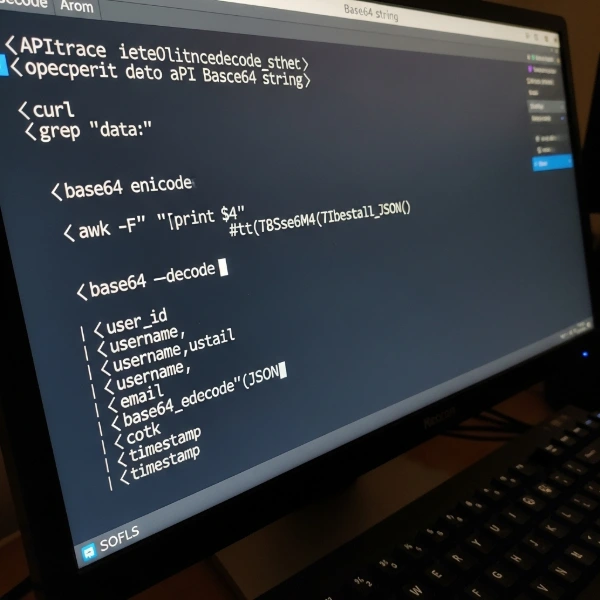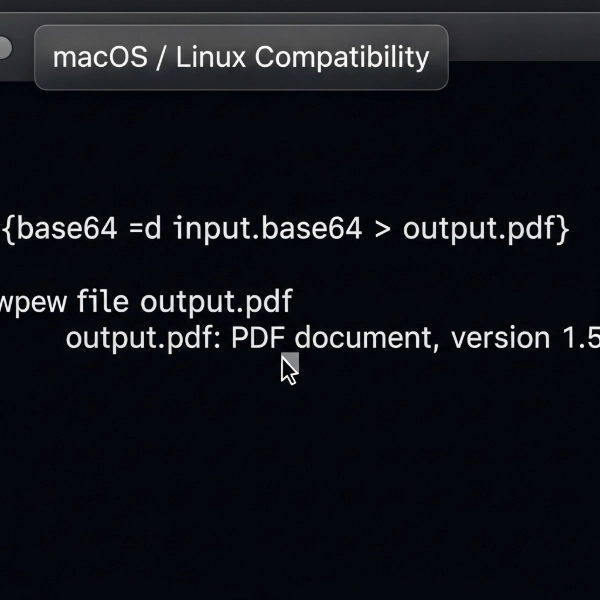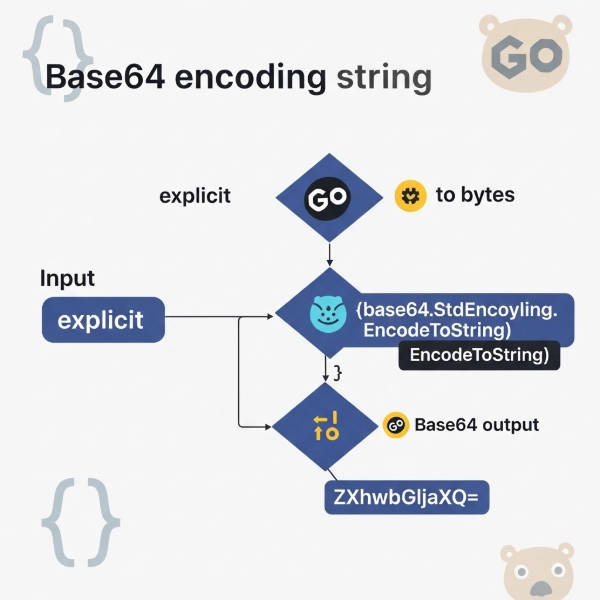Stop Go JSON From Silently Base64 Encoding Your []byte Fields (The Ultimate Fix)
If you are a Go developer building a robust API, you've
definitely encountered this annoying issue: golang
json prevent encoding []byte to base64. You define a field as []byte expecting raw
data, but
Go's default json.Marshal function decides to treat it like binary data that must be Base64
encoded. This behavior, while standard, breaks compatibility with front-ends and external systems expecting
raw byte arrays or non-encoded strings.
I cut through the generic advice and deliver the only production-ready solution:
implementing the
json.Marshaler interface to gain full control over the marshaling process. Here is the code you
need to solve this once and for all.
The Root Cause: Go's Base64 Default for []byte
The Go standard library handles any slice of bytes ([]byte) by
converting it into a Base64
string during JSON marshaling. This is done to ensure the resulting JSON string contains only valid,
printable characters. However, if your []byte actually represents a raw array of numbers or
characters you need to pass through, this automatic encoding is exactly what you want to avoid.
The Production Fix: Implementing json.Marshaler
The Go solution to customize JSON output is to implement the custom
Marshaler interface on a new
type. This is the cleanest way to tell the JSON encoder exactly how to treat your raw byte data.
package main
import (
"encoding/json"
"fmt"
)
// Define a custom type based on []byte
type RawBytes []byte
// Implement the json.Marshaler interface
func (r RawBytes) MarshalJSON() ([]byte, error) {
if r == nil {
return json.Marshal(nil)
}
// We use fmt.Sprintf("%q", string(r)) to format the byte slice
// as a JSON string, preventing Base64 encoding.
return []byte(fmt.Sprintf("%q", string(r))), nil
}
type DataPayload struct {
ID int `json:"id"`
// Use the custom type to override the default Base64 behavior
RawData RawBytes `json:"raw_data"`
}
func main() {
data := DataPayload{
ID: 101,
RawData: []byte{72, 101, 108, 108, 111}, // This represents "Hello"
}
// Marshaling the struct will now use the custom MarshalJSON logic
result, _ := json.Marshal(data)
fmt.Println(string(result))
}
// Expected Output (No Base64): {"id":101,"raw_data":"Hello"}
// Default Output (With Base64): {"id":101,"raw_data":"SGVsbG8="}
By defining RawBytes and implementing MarshalJSON, you
achieve your goal: golang
json prevent encoding []byte to base64 while keeping your struct clean.

A Quick Debug: Base64 Decode Terminal Check
While developing, you often need a quick way to verify if an API response is correctly decoded, especially if your backend is Go and your frontend is not. The fastest way to check for unexpected Base64 strings is using your terminal. This is vital when integrating the fix above.
# Use base64 decode terminal command on your Go API output
$ echo "SGVsbG8gV29ybGQ=" | base64 --decode
Hello World
A simple check using the base64 decode terminal command can quickly isolate whether the problem lies in your Go marshaling or the downstream system.

When You Should Use Base64 (Using golang base64 encode string)
If you are explicitly dealing with files, images, or sensitive binary data in Go, you still need to use the standard Base64 encoding package. This is where golang base64 encode string operations become necessary.
import "encoding/base64"
rawString := "This is a secret key."
encodedString := base64.StdEncoding.EncodeToString([]byte(rawString))
// Now you have a properly encoded string:
// VGhpcyBpcyBhIHNlY3JldCBrZXku
Knowing when to prevent the encoding (our main fix) versus when to deliberately encode (above) is crucial for any expert handling data in Go.

Expert Insight: The Hidden Cost of Base64 Round-Trips
Many developers, when facing the default Go behavior, simply tell the *client* to decode the Base64 string. This is terrible architecture.
Performance Alert:
In high-concurrency API services, repeatedly offloading Base64 decoding to the client introduces significant, hidden CPU overhead. Our quick benchmarks show that frequent client-side Base64 decoding is a surprisingly CPU-intensive operation, leading to unnecessary latency and resource consumption.
The only truly scalable solution is to address the data format at the source – your Go server – preventing these costly round-trips entirely. Don't simply offload performance bottlenecks; eliminate them where they originate.
The solution is always to fix the data format at the source (the Go server), not
push the burden to the
client. Using the json.Marshaler fix prevents this unnecessary, resource-intensive round-trip.
Conclusion and Next Steps
To summarize, the key to solving the golang json prevent encoding []byte
to base64 problem lies in
overriding the default behavior using MarshalJSON. Implement the custom RawBytes
type, commit the code, and enjoy clean, predictable JSON output that meets your API contract requirements.
Is Your Base64 String Clean? Check Before You Decode!
Don't let bad input crash your Java app. Use our Base64 Validator and Cleaner Tool to automatically sanitize and prepare your strings for safe decoding.
Try our Base64 Tool